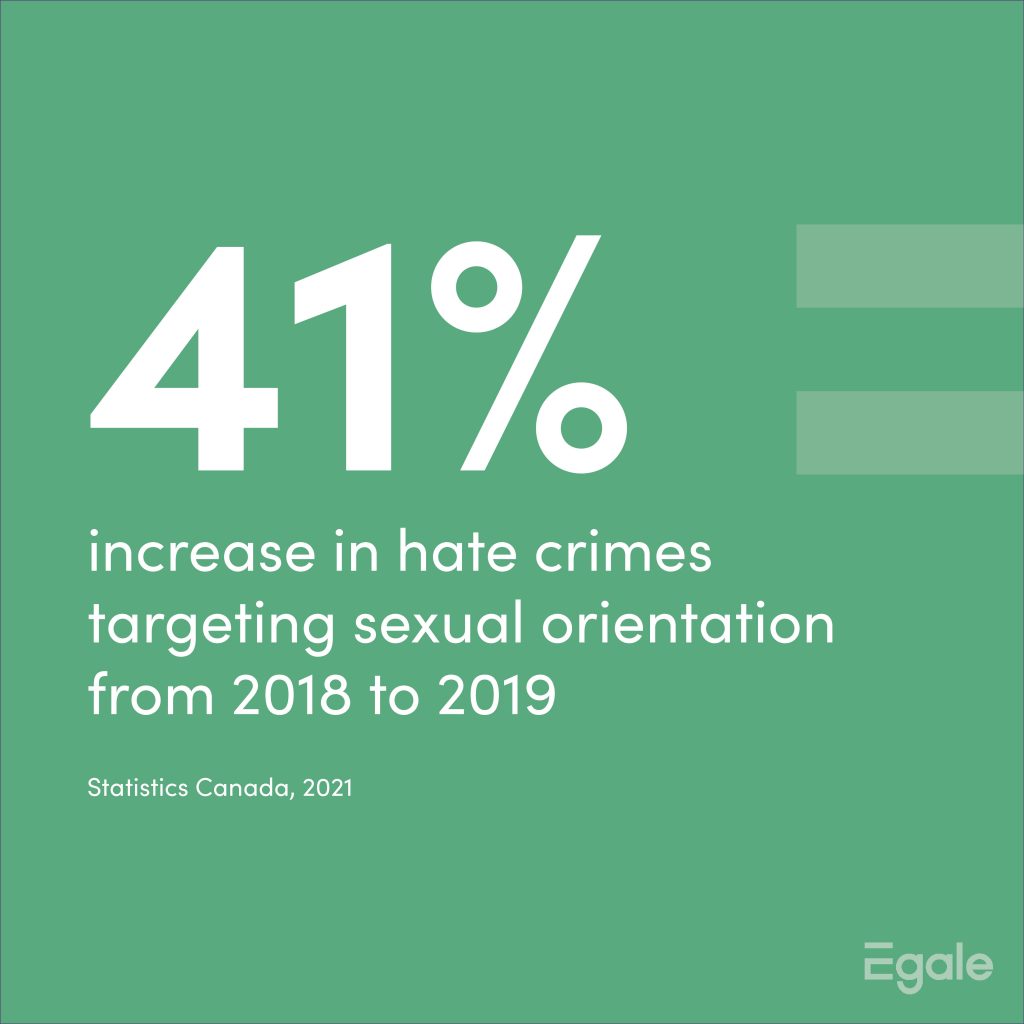
Today (March 29, 2021), Statistics Canada released their 2019 annual report on police-reported hate crimes. While the numbers are grim, they are nowhere near surprising.
For instance, “police reported 263 hate crimes targeting sexual orientation in 2019, up 41% from a year earlier. This was the highest number of hate crimes targeting sexual orientation dating back to 2009”. Not only that, but “as was the case in previous years, violent crimes accounted for more than half (53%) of hate crimes targeting sexual orientation” (StatCan, 2021). As with any report, it is crucial to remember these figures are underreported, and don’t articulate the full landscape of hate crime in Canada.
With 2SLGBTQI communities witnessing a record-high number of hate crimes in 2019, the Canadian government and community need to be more pro-active in addressing these incidents targeting sexual orientation and gender minority communities. Every year the data paints the same picture, yet there is an inadequate response from the Canadian Government on how to address this violence in a meaningful way.
Furthermore, while ‘gender identity or expression’ as a motivation for hate crime was amended in 2017 (Bill C-16), we continue to see little to no data collection on this topic; which continues to look over gender minority communities like trans, non-binary, gender diverse, and gender non-conforming people. That of which, exacerbates the lack of information and underreporting within these communities.
More statistics include…
Police-reported hate crime targeting sexual orientation, the South Asian, the Arab or West Asian, and the East and Southeast Asian populations was more often violent. [See our statement on the rise in Anti-Asian racism across North America.]
2SLGBTQI and Indigenous victims of hate crimes skew younger than other victims, with median ages of 27 and 28, respectively.
55 hate crimes targeting gender expression or identity were reported to police between 2010 and 2019; of these, 80% were violent.
2SLGBTQI Canadians are less likely to report physical violence to the police than other groups.
Uttering threats continues to be the most common type of cyber hate crime. 13% of police-reported hate crimes that were also recorded as cybercrimes between 2010-19 targeted the 2SLGBTQI community.
How can I help?